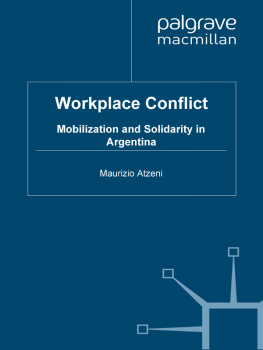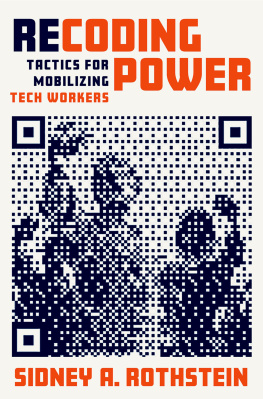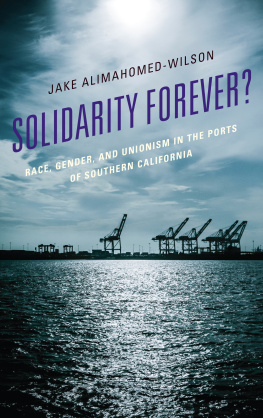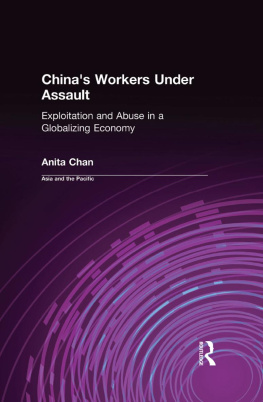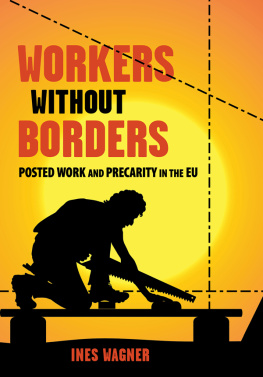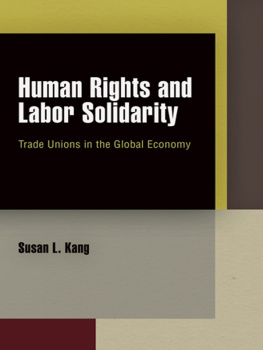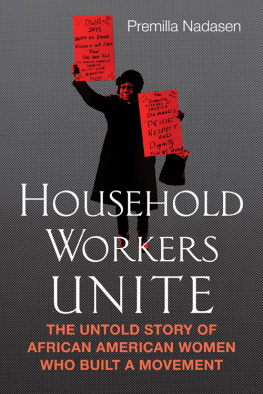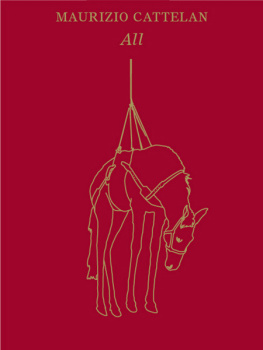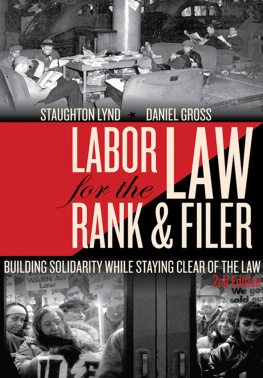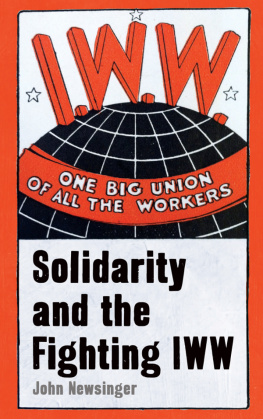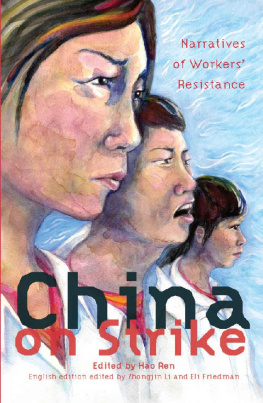Workplace Conflict
Workplace Conflict
Mobilization and Solidarity in Argentina
Maurizio Atzeni


Maurizio Atzeni 2010
All rights reserved. No reproduction, copy or transmission of this publication may be made without written permission.
No portion of this publication may be reproduced, copied or transmitted save with written permission or in accordance with the provisions of the Copyright, Designs and Patents Act 1988, or under the terms of any licence permitting limited copying issued by the Copyright Licensing Agency, Saffron House, 6-10 Kirby Street, London EC1N 8TS.
Any person who does any unauthorized act in relation to this publication may be liable to criminal prosecution and civil claims for damages.
The author has asserted his right to be identified as the author of this work in accordance with the Copyright, Designs and Patents Act 1988.
First published 2010 by
PALGRAVE MACMILLAN
Palgrave Macmillan in the UK is an imprint of Macmillan Publishers Limited, registered in England, company number 785998, of Houndmills, Basingstoke, Hampshire RG21 6XS.
Palgrave Macmillan in the US is a division of St Martins Press LLC, 175 Fifth Avenue, New York, NY 10010.
Palgrave Macmillan is the global academic imprint of the above companies and has companies and representatives throughout the world.
Palgrave and Macmillan are registered trademarks in the United States, the United Kingdom, Europe and other countries.
ISBN: 9780230584648 hardback
This book is printed on paper suitable for recycling and made from fully managed and sustained forest sources. Logging, pulping and manufacturing processes are expected to conform to the environmental regulations of the country of origin.
A catalogue record for this book is available from the British Library.
A catalog record for this book is available from the Library of Congress.
10 9 8 7 6 5 4 3 2 1
19 18 17 16 15 14 13 12 11 10
Printed and bound in Great Britain by
CPI Antony Rowe, Chippenham and Eastbourne
For my family
For workers struggles: past, present and future
Tables and Figures
Tables
Figures
Abbreviations
AAA | Alianza Anticomunista Argentina/Argentine Anticommunist Alliance. |
ACINDAR | Industria Argentina de Aceros/Argentine Steel Industry. |
CGIL | Confederazione Generale Italiana del Lavoro/General Italian Confederation of Labour. |
CGL | Confederazione Generale del Lavoro/General Confederation of Labour. |
CGT | Confederacin General del Trabajo/General Confederation of Labour. |
CGTA | Confederacin General de los Trabajadores Argentinos/General Confederation of Argentine Workers. |
CORMEC | Crdoba Mecnica/Crdoba Mechanical Workshops. |
CPI | Conduttore di Processi Integrati/Foreman. |
CTA | Congreso de los Trabajadores Argentinos/Congress of Argentine Workers. |
ENTel | Empresa Nacional de Telecomunicaciones/National Company for Telecommunications. |
FIAT | Fabbrica Italiana Automobili Torino/Italian Automotive Company Torino. |
FIM | Federazione Italiana Metalmeccanici/Italian Federation of Metalworkers. |
IKA | Industrias Kaiser Argentina/Kaiser Industries Argentina. |
IMF | International Monetary Fund. |
MTA | Movimiento de los Trabajadores Argentinos/Movement of Argentine Workers. |
REPO | Rappresentante dellufficio Personale/Representant of the Personnel Office. |
SITRAC | Sindicato de Trabajadores de Cncord/Cncord Workers Trade Union. |
SITRAM | Sindicato de Trabajadores de Materfer/Materfer Workers Trade Union. |
SITRAMF | Sindicato de Trabajadores Mecnicos de Ferreyra/Trade Union of Ferreyras Mechanical Workers. |
SITRAP | Sindicato de Trabajadores de Perkins/Perkins Workers Trade Union. |
SMATA | Sindicato de Mecnicos y Afines del Transporte Automotor/Trade Union of Mechanics and Automotive Transport Workers. |
UCR | Unin Cvica Radical/Radical Civil Unin. |
UIA | Unin Industrial Argentina/Argentine Industrial Union. |
UILM | Unione Italiana Lavoratori Metalmeccanici/Italian Union of Metalworkers. |
UOM | Unin Obrera Metalrgica/Metalworkers Trade Union. |
Preface and Acknowledgements
This book is the result of a long personal journey into the world of work and the social sciences during the course of which, and through study and experience, I came to define more clearly my overall research approach and political stance. But the book is also the result of a long, although recent, period of history that started in 1996 and coincided with the mobilizations in the FIAT and Renault plants in Crdoba, on which this work is based. After six years during which workers original collective passions and struggles became individual and distant memories of the events, the interviews collected as part of my doctoral research, between 2002 and 2003, helped to rediscover, through personal histories, forgotten cases of workers opposition to labour flexibility and neo-liberalism at a turning point in Argentinas recent social history. However, Palgraves decision to publish the book six years later made me re-write my original doctoral dissertation.
Over the course of the last eight years, between the start of my fieldwork and the finishing of the book, I have often thought, and doubted initially, about the relevance, timeliness and interest people can find in the micro analysis of the social processes conducing groups of workers to act collectively. Is solidarity or injustice more important? Are leaders pivotal in mobilizing people? Is collective action spontaneous or organized? What are the implications for theory? Moreover, how relevant were these issues for workers in industrialized countries? After a triumphant neo-liberalism and financial capitalism had defeated opposition and imposed their social peace, was it still relevant to write about workers collective actions and collectivism in general?
These questions have followed me for a while but have quickly been superseded by new events, new knowledge and the experience gained through the research. The events of December 2001, when I was in Argentina and about to start my fieldwork, have clearly been a turning point. In December 2001, Argentinas economy collapsed and institutions imploded as a consequence of massive social mobilizations. Protests were violently repressed. The country, considered by the IMF until the very last moment as the best model in the implementation of neo-liberal policies, woke up after ten years of reforms impoverished and divided, but also rebellious. We were the first, would later argue FIATs workers elected leader commenting about the roadblocks used by the unemployed piqueteros in their struggles, a daily reality in Argentina during the second half of the 1990s and still continuing when I was interviewing him in 2002/2003. Historically, this was not completely true as the first workers resistance to neo-liberal reforms could be traced back to the early 1990s privatization of public companies. But the idea of linking all these different manifestations of working-people resistance to a single dominating model was clear. Later on, the study of the past sixty years of Argentinas social history gave me more details to identify other typologies and socio-political contexts in which workers mobilizations have differently, but relentlessly, appeared over the years. Silvers work on global labour unrest and studies in global labour history have further added to the idea of the transhistorical dimensions of workers struggle, something that, if at all necessary, the new waves of mobilizations produced worldwide by the current economic crisis seem to confirm.

